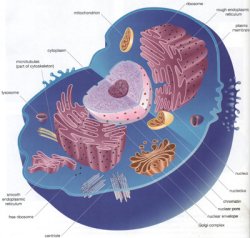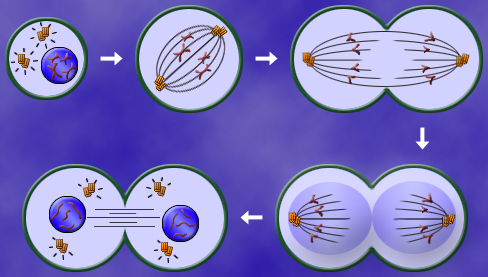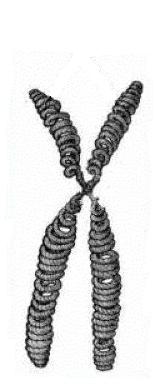
A cell is the smallest unit in an
organism. A plant, animal or a human for example are made up of lots of these
cells stacked together.
Depending on where they are in the body, cells have a different shape and more
importantly a different function.
But generally a cell can be represented like this:

Usually a cell of a higher organism is composed of:
• A membrane, enclosing the cell;
• Organelles, functional components; picture these like organs in a body each carrying out a specific function.
• The nucleus, containing the chromosomes with all the information necessary for the body to function, grow and reproduce.
The most important "material"
to build a cell is a protein. They are the basic
building materials and are made by the cell itself.
Proteins are crucial in the formation of cells and in giving cells the capacity
to function.
Formation of cells proceeds by multiplication,
a process that is called mitosis.
Basically two cells are formed from one mother cell and they are identical as
they have the same information in the nucleus.

For genetic engineering, the information contained in the nucleus is the most relevant. It is stored in the chromosomes, which are mainly made up of DNA.
 A
Chromosome
A
Chromosome